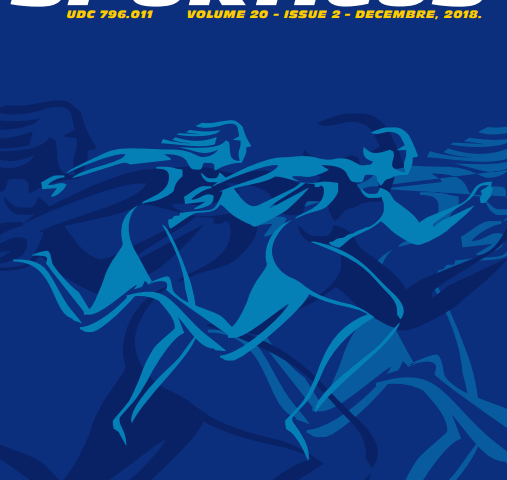Abstract
Based on the theoretical analysis and the present findings of the research on psychological factors that contribute to the successful implementation, we have designed this research project in order to integrate the knowledge of the Five-Factor Personality Model (McCrae and Costa, 1992), which is the starting point for the Hypothetical model of success in team sports (Mlačić and associates, 2010), and self-efficacy (Bandura, 1986) and the locus of control (Rotter, 1971), which are important determinants of individual characteristics of sportsmen and their contribution to successful sport. Therefore, the aim of this research is to test the contribution of individual psychological features (neuroticism, extraversion, agreeableness, openness to experience, conscientiousness, self-efficiency, locus of control and length of football training as one of the experience traits), in explaining the success of football players. The research involved 165 football players from six football clubs in Bosnia and Herzegovina. For the evaluation of the predictor variables it is used a questionnaire on general data of footballers; The NEO-PI R (Coste and McCrae, 1992) was used for the examination of Five Personality Factors, and the Scale of self-efficacy of footballers was used to examine self-efficiency in football (Šamija and Bosnar, 2010) while the Scale of externality was used to examine the locus of control (Bezinović, 1990). The assessment of the performance of footballers operating through the Scale for the assessment of technical-tactical and social competencies of football players- STTSKT (Šetić, Kolenović-Đapo, Talović, 2017) has conducted 14 trainers. In order to check the contribution of the predictor variables of individual psychological characteristics in predicting the individual success of footballers (STTSKT), we conducted a process of hierarchical multiple regression. According to logical and content characteristics, we have introduced the predicate variables into the two blocks; in the first block there is a personality trait of the Five-Factor model, and in the second block is self-efficacy, locus of control and experience. The individual characteristics of the dimension of the personality of the Five-Factor model explained 6.6% of the STTSKT variance, and after we included the perceived self-efficacy, locus of control and experience in the second step, the model explains 13.3% of the total variance. The model as a whole with both blocks of individual features is significant F (8.136) = 2.597, p <0.01. Of all predictive personality variables, only perceived self-efficacy significantly contributes to predicting success in football (β = 0.251; p <0.05).


